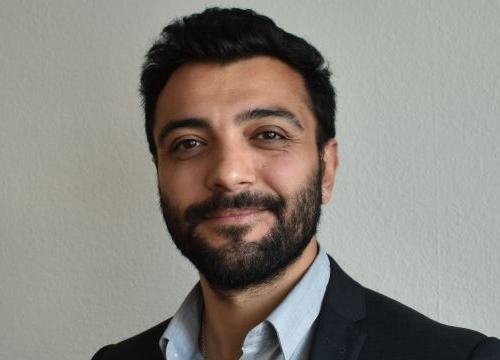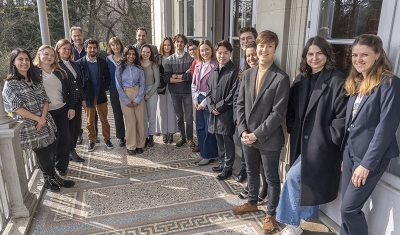Executive Master in International Law in Armed Conflict: What Participants Say
19 May 2020
Tarek Tawil is a humanitarian practitioner, specialized in the protection of refugees and internally displaced persons during and following armed conflicts.
He worked with the Syrian Arab Red Crescent (SARC) and the United Nations (UN) High Commissioner for Refugees (UNHCR) during the conflict in Syria between 2014 and 2019, and more recently as a Humanitarian Affairs Consultant at the Headquarters of the UN Office for the Coordination of Humanitarian Affairs (OCHA). Currently, Tarek is involved, as a Research Associate, in the Counter-Terror research project conducted by Professor Gloria Gaggioli at the University of Geneva.
Tarek holds a master in humanitarian action, a diploma in international affairs and diplomacy, and a bachelor’s degree in civil engineering.
Why did you choose the Executive Master in International Law in Armed Conflict?
For humanitarian practitioners like me, understanding the international legal framework during armed conflicts is fundamental to better design humanitarian response strategies; to plan access to the affected population trapped in hostile situations; and to advocate protecting and ensuring their rights according to the different branches of international law.
Considering the contemporary nature of armed conflicts, characterized by the rise of non-state actors, counter-terrorism campaigns, transnational armed conflicts, and mass-influxes of people in need of special protection, knowing how to apply the different modern legal arguments is becoming more and more vital. This is why I decided to follow this programme. Its flexibility and the diversity of participants’ profiles, which enriches the knowledge exchange (e.g. humanitarians, human rights advocates, diplomats, etc.), also explain my choice.
Does it Respond to your expectations?
The programme is designed and structured in a very comprehensive and interactive way. The knowledge provided throughout is built on the interplay between international refugee law, international humanitarian law (IHL), international human rights law, international criminal law and public international law, after having studied each branch separately.It also gives space to exchange ideas and to discuss critically contemporary trends from different positions, which I really appreciate.
Enrolling in this programme was the right decision and it perfectly met my expectations. Thankfully to the programme, I was able to build my legal knowledge, develop my critical thinking, and widen my horizon when analysing armed conflicts, considering different branches of international law and the interaction between them.
What are the Highlights of the Programme?
I really appreciate the practical approach of the programme in which we analyse different real-time cases. This is especially tangible when studying IHL, the interplay between IHL and human rights, combating terrorism and violent extremism, and public international law on the use of force (jus ad bellum).
A Moment you Particularly Enjoyed?
The topic of countering terrorism and its impact on human rights is of special interest to me. This was perfectly covered during the course on combating terrorism and violent extremism, and the course on the use of force against terrorism. The controversies of this phenomenon and the modern debates and positions between human rights defenders, states, and international organizations were critically discussed. Addressing this topic was one of my best enjoyable times of the programme.
What will it Bring to your Career?
I will apply the legal knowledge I gained and the analysis skills I developed throughout the programme in my humanitarian duties. I have learned how to utilize a complementary approach between IHL, human rights and international refugee law to better promote the protection of civilians during armed conflicts. Additionally, understanding the different legal narratives to justify the use of force and self-defence will help me to better analyse armed conflicts and its legal consequences. At another level, this programme is also the occasion to open more opportunities in the sphere of international affairs and to advance my career to assume higher responsibilities.
Would you Recommend it?
I highly recommend this programme to all humanitarians, human rights defenders or diplomats who have the ambition and will to develop their legal knowledge and advance their careers to assume greater responsibilities.









